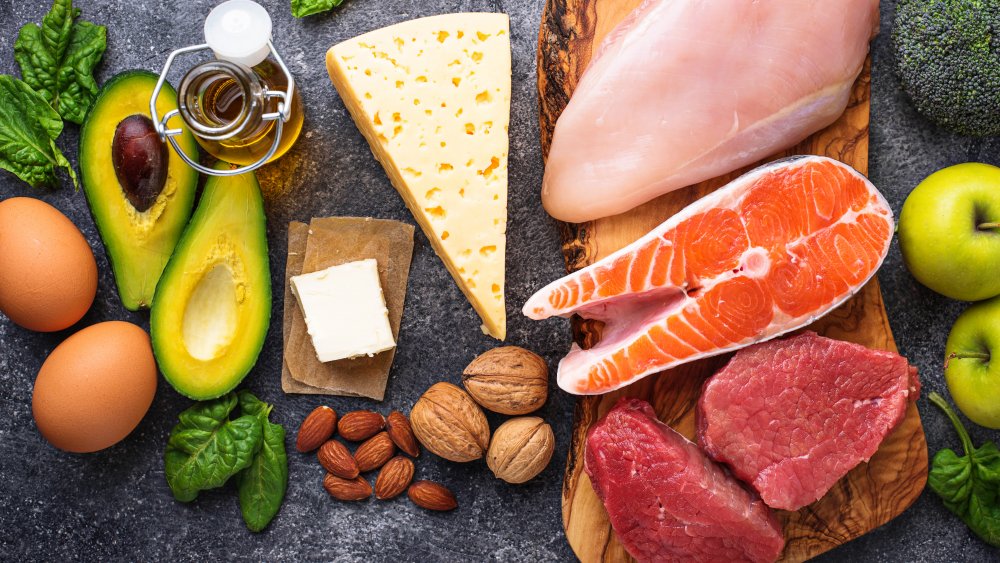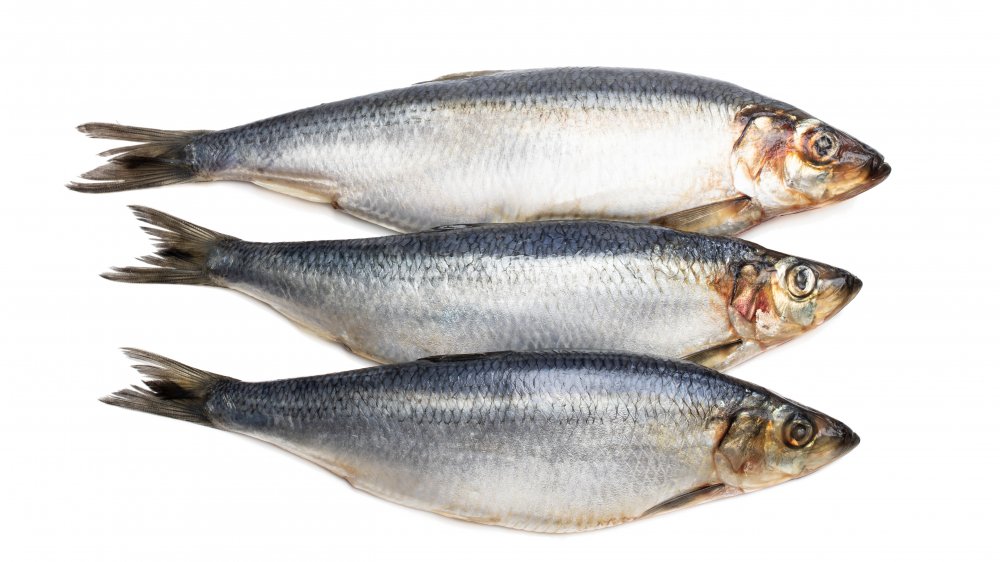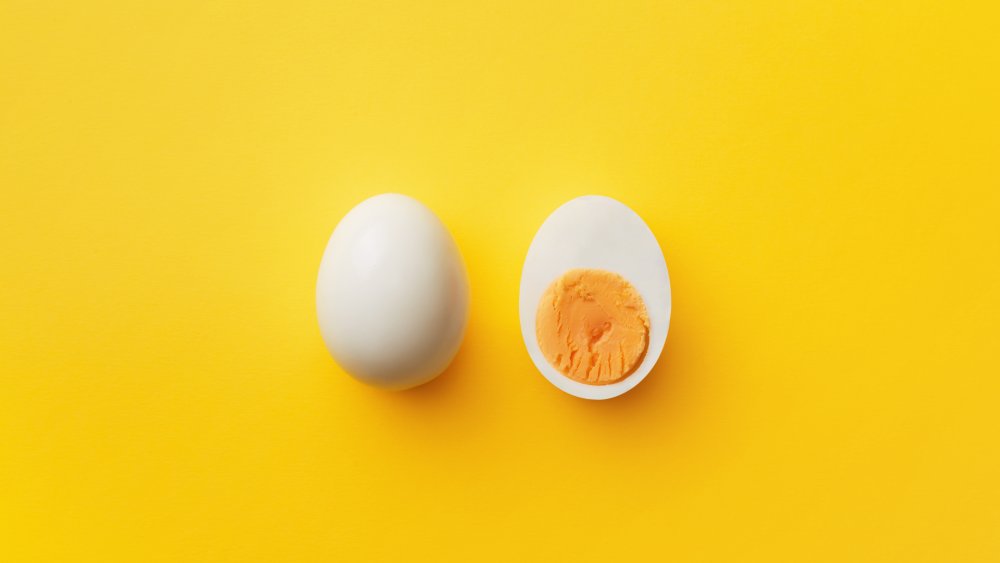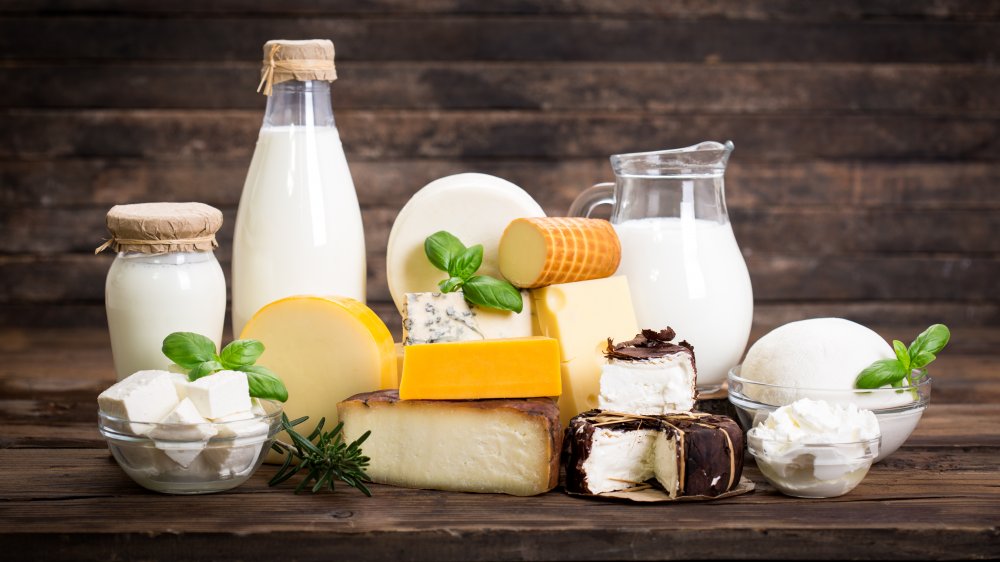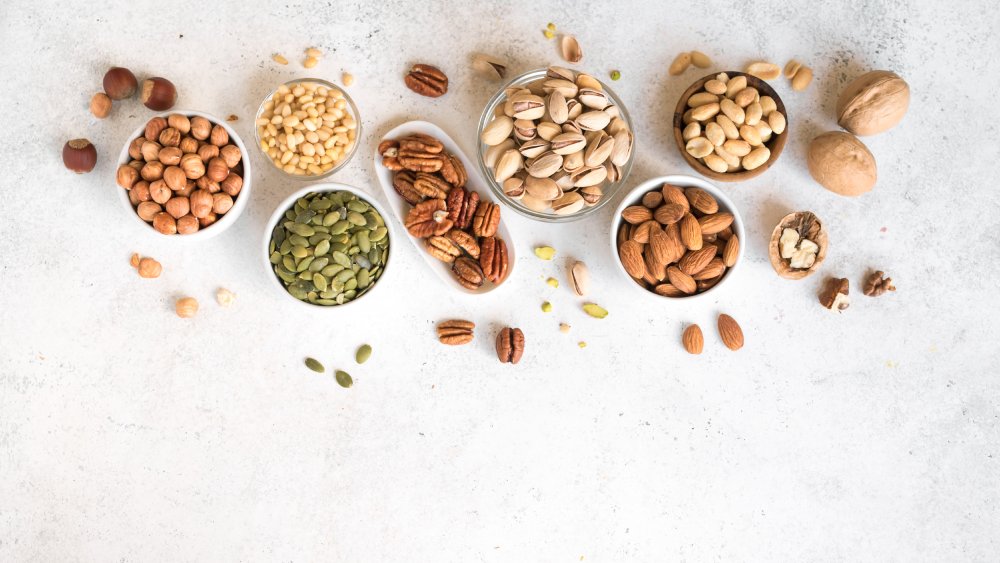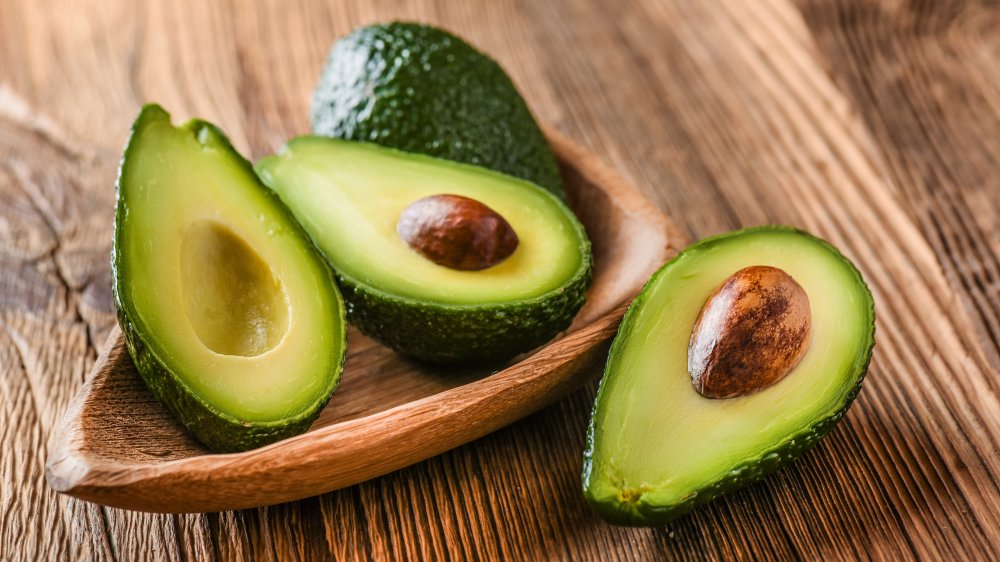These Are The High-Fat Foods That Are Actually Good For You
Diet fads come and go, but one particular trend — that of low-fat everything – pretty much took over the store shelves in the 80's and 90's, and NPR points out that the demonization of all things fat actually got its start back in the 70s. Oddly enough, cutting fat out of our diets didn't help us to lose weight. In fact, it had quite the opposite effect. Or perhaps it wasn't that odd considering that many fat-free foods were loaded with sugar to compensate for any flavor loss, and fat-heavy entrees based on meats, eggs, and cheeses were replaced by dishes made from simple carbs such as white potatoes, white rice, and white bread.
Instead of leading to an overall reduction in heart disease — something this low-fat diet still failed to achieve — we instead wound up with soaring rates of diabetes and obesity. Luckily, dietitians in later years realized that not all fats are bad. In fact, certain types of "good fats" can not only be part of a successful weight loss regimen but can lead to better health overall.
Fatty fish
The fattier types of fish, which include albacore tuna, herring, lake trout, mackerel, salmon, and sardines, are high in omega-3 fatty acids. The American Heart Association recommends eating at least two servings of fish per week to promote cardiac health, and Healthline notes that there have been studies linking fish eating to reduced rates of dementia, depression and other ailments.
If you just can't bring yourself to consume anything that used to swim, however, you can still get the benefits of this good fat by taking a daily codfish oil supplement to get those omega-3s as well as a dose of vitamin D.
Eggs
Eggs are a great source of protein, and even back in the bad old low-fat days, people still made use of the whites to whip up such not-so-tasty concoctions as the egg white omelet. It turns out, though, that yolks are not only safe to eat, but actually quite beneficial. According to Medical News Today, egg yolks contain choline, a B vitamin that supports brain, liver, muscle, and nerve function, as well as vitamin D and phytonutrients such as lutein. Yolks also contain 5.3 grams of fat, 1.6 grams of which are saturated. While it was once thought that egg consumption would increase cholesterol levels, there have been recent studies which seem to indicate that eating eggs can actually reduce the risk of cardiovascular disease.
Dairy products
Full-fat dairy products like cheese and milk are rich in calcium, protein, phosphorus, selenium, and vitamin B12. Full-fat yogurt also has the added benefit of probiotic bacteria that can help with digestion and weight loss, and may also be able to protect against heart disease. Medical News Today even references a study which showed that yogurt consumption helped reduce high blood pressure in women. Regarding the desirability of fat content in dairy products, Healthline notes that its fatty acids have been linked to a wide range of health benefits, including reducing the risk of type 2 diabetes. (Not to mention, half-and-half just tastes a lot better in your coffee than skim milk.)
Nuts and seeds
While it may sound like the punchline to a joke about either squirrels or back-to-the-land hippies, eating nuts and seeds is actually one of the best things you can do for your health. Nuts are not only high in healthy fats, but also protein, fiber, and Vitamin E, and they're also a great source of magnesium, a mineral that Healthline points out most of us tend to be deficient in. People who eat nuts on a regular basis tend to have a lower risk of heart disease, obesity, and type 2 diabetes.
Women's Health also makes mention of the often overlooked seeds, particularly of the chia, sunflower, sesame, and pine nut varieties (despite their name, pine nuts are actually a type of seed). All of these contain high levels of healthy fats as well as protein and other vitamins and minerals. Both nuts and seeds can be mixed into salads, smoothies, and oatmeal, used as a crunchy, carb-free coating for meats and fish, and of course make a tasty, healthy addition to any cookie or muffin recipe.
Avocados
Avocados were once written off as one vegetable (though technically a fruit) that you should never, ever touch, entirely on account of the very high level of fat they contain. Well, that fat turns out to be a good thing after all, since it's of the heart-healthy monounsaturated kind –- Healthline reveals that the main fatty acid found in avocados is oleic acid, the same stuff found in olive oil.
What's more, nutritionist Kelli McGrane, RD tells Women's Health that avocados have the added benefit of being "high in fiber and contain[ing] more potassium than bananas," in fact, up to 40 percent more. Studies have shown that avocados can help lower your LDL (bad) cholesterol and trigycerides and raise your HDL (good) cholesterol, and can even help you lose weight and have less belly fat. Best of all, avocados are incredibly easy to add to your diet. Even if you're not a fan of avocado toast, who doesn't love guacamole?
